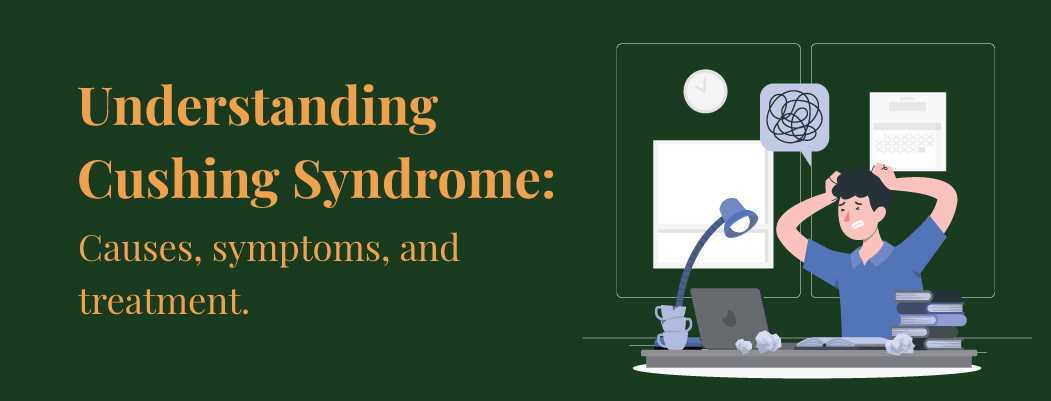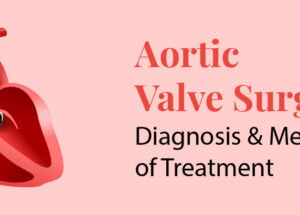What is Cushing syndrome?
February 7, 2023

What is Cushing syndrome?
Cushing syndrome, also known as hypercortisolism, is a rare condition that occurs when the body is exposed to high levels of cortisol for a prolonged period of time. Cortisol is a hormone that is produced by the adrenal glands, and it plays a critical role in regulating blood sugar levels, managing stress, and maintaining overall health. In people with Cushing syndrome, the levels of cortisol in the body are too high, which can lead to a range of symptoms and health problems.
Contents
- Symptoms of Cushing’s Syndrome
- Risk Factors of Cushing’s Syndrome
- Causes of Cushing’s Syndrome
- Diagnosis of Cushing’s Syndrome
- Treatment of Cushing’s Syndrome
- Lifestyle Changes and Diet for Cushing’s Syndrome
- Cushing’s Syndrome Complications
- How can I lower my chance of developing Cushing syndrome or prevent it?
- What should I anticipate if I have Cushing syndrome?
- What is the duration of Cushing syndrome?
- Can Cushing disease deteriorate further?
- Who should you consult for Cushing Syndrome?
- People also ask
Symptoms of Cushing’s Syndrome
The symptoms of Cushing syndrome can vary depending on the severity and duration of the condition. Some of the common symptoms include:
- Weight gain, particularly in the face, neck, and upper body
- Fatigue and muscle weakness
- High blood pressure
- Mood changes, including irritability, anxiety, and depression
- Thinning skin and stretch marks
- Easy bruising and slow wound healing
- Increased thirst and urination
- Osteoporosis and bone fractures
- Irregular menstrual cycles in women
- Decreased libido and impotence in men
Risk Factors of Cushing’s Syndrome
There are several risk factors that can increase the likelihood of developing Cushing syndrome, including:
Having a tumour in the adrenal gland or pituitary gland that produces cortisol Having a family history of Cushing syndrome Being obese or having type 2 diabetes
Causes of Cushing’s Syndrome
Cushing syndrome occurs when your body has too much of the hormone cortisol over time However, in some cases, Cushing syndrome can be caused by a tumour in the adrenal gland or pituitary gland that produces cortisol. This condition is known as Cushing’s disease and is responsible for approximately 70% of all cases of Cushing syndrome.
Diagnosis of Cushing’s Syndrome
To diagnose Cushing syndrome, a doctor will typically begin by conducting a physical exam and asking about symptoms and medical history. They may also order blood tests to measure cortisol levels in the body. If the initial tests suggest that cortisol levels are elevated, the doctor may then order further tests, such as a dexamethasone suppression test or an MRI or CT scan to identify any tumours in the adrenal gland or pituitary gland.
Treatment of Cushing’s Syndrome
The treatment for Cushing syndrome depends on the underlying cause of the condition. If the condition is caused by a tumour in the adrenal gland or pituitary gland, the doctor may recommend surgery to remove the tumour. In some cases, radiation therapy or chemotherapy may also be recommended.
Lifestyle Changes and Diet for Cushing’s Syndrome
In addition to medical treatment, several lifestyle changes and dietary modifications can help manage the symptoms of Cushing syndrome. These include:
- Exercise regularly to help maintain a healthy weight and improve muscle strength and endurance.
- Eat a well-balanced diet that is high in fibre, protein, and healthy fats and low in sugar and processed foods.
- Limit caffeine and alcohol intake, as these can exacerbate symptoms of anxiety and irritability.
- Stress through relaxation techniques such as meditation, deep breathing, or yoga.
- Get plenty of restful sleep each night to help manage fatigue and promote overall health.
It’s important to note that any lifestyle changes or dietary modifications should be made in consultation with a healthcare provider to ensure they are safe and appropriate for an individual’s specific needs.
Cushing’s Syndrome Complications
If Cushing’s syndrome is not treated, it can result in severe health issues and even death. Among the issues could be:
- A stroke or a heart attack
- A blood clot in the lung or in the legs
- Infections
- Fractures and bone loss
- High blood pressure
- Elevated cholesterol
- Depression or a change in attitude
- loss of memory or difficulty concentrating
- Type 2 diabetes
How can I lower my chance of developing Cushing syndrome or prevent it?
Your body requires cortisol at all times. You must have it to work. It controls your breathing, converts food into energy, controls your blood sugar, aids in stress management. Your body doesn’t hate cortisol, but too much of it can be harmful. But you need cortisol to survive.
If you’re taking steroids or glucocorticoids, ask your doctor to carefully watch your cortisol levels. Unfortunately, there is no way to stop growth from causing Cushing syndrome (hypercortisolism).
What should I anticipate if I have Cushing syndrome?
Your doctor can treat Cushing syndrome. It can be fatal if untreated. Consult with your doctor as quickly as possible to have your symptoms evaluated.
What is the duration of Cushing syndrome?
Usually, Cushing disease is curable. Up to 18 months may pass during the course of treatment.
Can Cushing disease deteriorate further?
If Cushing syndrome is not properly treated, it can worsen. Keep in touch with your doctor and let him or her know if you experience any new or worsening symptoms or if you have any other worries.
Who should you consult for Cushing Syndrome?
You’ll likely need to see a doctor who specialises in hormonal disorders (endocrinologist).
Summary
In summary, Cushing syndrome is a rare condition that occurs when the body is exposed to high levels of cortisol for a prolonged period of time. The symptoms of Cushing syndrome can vary depending on the severity and duration of the condition. Diagnosis typically involves a physical exam and blood tests, and treatment depends on the underlying cause and may involve medication or surgery. In addition to medical treatment, lifestyle changes and dietary modifications can also help manage symptoms and promote overall health.
People also ask
What are the three symptoms of Cushing’s syndrome?
- Weight gain, particularly in the face, neck, and upper body
- Fatigue and muscle weakness
- High blood pressure
How is Cushing syndrome diagnosed?
A review of your medical history, a physical exam, and laboratory tests that help identify the existence of elevated cortisol levels are used to make the diagnosis of Cushing’s syndrome. Tumours are frequently found using X-ray examinations of the pituitary or adrenal organs.
What does Cushing syndrome cause?
Cushing’s disease is a type of Cushing syndrome that is caused by a tumour in the pituitary gland that produces too much cortisol. It can cause a range of symptoms, including weight gain, fatigue, muscle weakness, high blood pressure, mood changes, thinning skin, and easy bruising.








